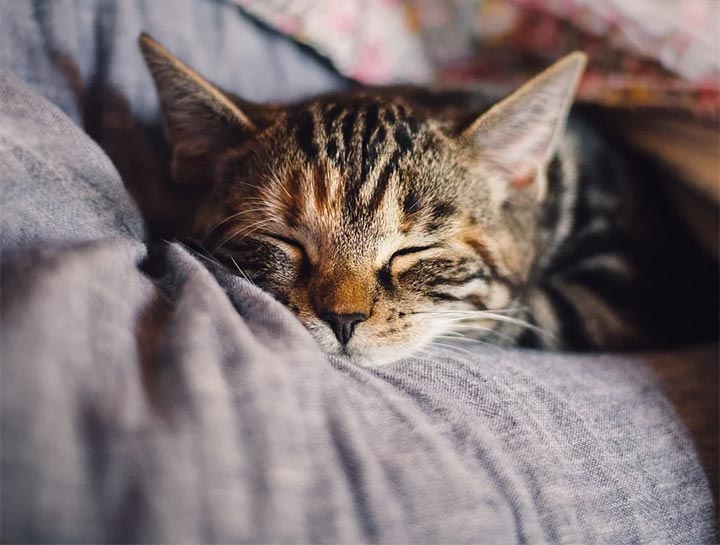Adopting a Cat

So you have decided to adopt a cat. Congratulations! You will not only be saving a life but you will also be enriching your own life. Cats are great companions and come in many different shapes, sizes and breeds. Before going into detail about how to get a cat and where to get it from, it is important to stress that a cat is not a passing fancy but a commitment for the lifespan of the animal.
The average life span of a cat is 15 years and many cats will live to be 20 years or more. So before rushing in and getting a kitten to bring home, think 'Am I ready for this?' In addition, you should never surprise someone with a cat as a gift. Unless you know that this person really wants to receive it, and is able to care for it properly, you could be bringing unwanted problems into that person's life (and the cat's!). Also, it is very important that the future owner (owners if we are talking about a family) choose the cat that they think is suitable for them.
Another important consideration is whether any member of the family who will be in constant contact with the cat has any allergies. Allergic reaction to cats is common and it is unlikely that the condition will be improved by having a cat on the premises. It is more likely that the allergy will intensify. If you are not sure but you suspect that you might be allergic to cats, check with your primary care physician first. A simple allergy test can put your mind at ease. You might wonder if a negative test is a full assurance that you will never develop allergy - the simple answer is no. Allergies can develop at any stage of your life and there is no way to predict if someone is likely to develop cat allergy.
Okay, you still want a cat - so what is the next step? The next thing is to decide what type of cat you want. Now is the time to consider your options.
- Do I want a kitten, a young adult or a mature cat?
- Do I want a particular breed?
- Is a female or male cat better for me?
- Should I keep my cat indoors exclusively?
- Should I have one or more cats?
Do I want a kitten, a young adult or a mature cat?
Kittens are certainly very adorable. Fluffy and helpless, they almost instantaneously make you think "I want it". It is therefore not surprising that kittens are the most popular choice. But is it always the best choice? When a family considers a cat for a child, kittens can be a very good choice. They are playful, and with children around, they will get the attention they require. However, it is important to remember that kittens do no come house trained. You will have to teach them (for example) how to use the litter box, the scratching pad (instead of the carpet) and why climbing curtains is a bad idea. By their nature, kittens will explore and create a degree of havoc from time to time.
Young adults, when adopted from a good home, will already be house trained and generally require much less initial work. For busy professionals, a young adult cat is probably the best option, especially if you provide him with lots of toys and environmental enrichment. Young adults have already gone through the "crazy kitten stage" and are less likely to cause damage to your home.
Finally, let's consider an older cat. These can be great pets. As companions they are outstanding, they will spend more time snoozing on your sofa or you lap, and most love being cuddled. At the same time they are usually well house trained, so they are more likely to be impeccable residents. All cats need a quiet corner in the house where they can sleep undisturbed during the day. But for older cats this is more important than ever, so busy households with lots of children and other rambunctious animals are probably not ideal for such cat cats. Also older cats are more likely to develop health problems and may require more frequent visit to the veterinarian.
Do I want a particular breed?
Purebred Cats
The cat's appearance and temperament should be the first deciding factors. Long-haired cats, (Persian, Himalayan, Maine Coon etc) require regular brushing. Short-haired varieties, (American Short-hair, Burmese, Siamese etc) require much less brushing since they are quite capable of grooming themselves. Although each individual cat has its own personality, there are some common breed related behavioral characteristics. For example, Persians and Himalayans are bred for their docile character. They enjoy a warm lap or sofa and are well suited to spending quiet time indoors. Some oriental breeds tend to be very demanding and vocal. Also, you have to consider health problems, which are more common in some breeds than others. Before getting a purebred cat it is important to do research about the breed and also talk to a vet who will be able to give you help and advice. When purchasing a purebred cat always try to view the parents and litter-mates to see if you can spot any potential behavioral problems.
Non-purebred Cats (Domestic Short-hair, Domestic Medium-hair, Domestic Long-hair)
Most non-purebred cats make absolutely wonderful pets. Because they are cross bred they are generally more robust animals in terms of health and temperament. The best places to get a non-purebred cat are cat rescues/shelters. Although you are unlikely to see the cat's parents there, the staff will be able to tell you what you need to know about each candidate for adoption.
Is a female or a male cat better for me?
Some would say females are better pets than males, while others swear the opposite. Neutered females and males are very similar so this should not greatly affect your choice. Males are normally more confident and more likely to be your standard lap cat, although this is also more likely to be the result of early handling.
Cats that are not neutered are a different matter. During the mating season they may be more aggressive. Unneutered male cats have the tendency to spray pungent urine during these times. Unneutered females can go through a heat cycle of undetermined length and frequency at which time they will howl to attract potential males. They can also be very needy and unpredictable during these times. Therefore, it is always recommended that all cats are neutered at the earliest opportunity.
Should I keep my cat indoors exclusively?
While outdoor living may seem tempting, it has been proven that cats that are exclusively indoors live on average 3 times longer than outdoor cats. There are many hidden dangers to living in the outside world. Some risks to the outdoor cat include:
Injury or death by automobile Disappearance or loss Taken into another household Infectious agents (Rabies virus, Feline Leukemia & Feline Immunodeficiency Viruses, Feline Upper Respiratory virus, Toxoplasmosis) Parasites (Fleas, ear mites, tapeworms, roundworms, heart-worms, ticks) Fights or attacks by other animals resulting in abscessed wounds, rabies or even death Stuck in high places Trapped in basements, garages, sheds, etc. Poisoned by toxic substances (Antifreeze, pesticide poisoning)
Should I have one or more cats?
Although cats are thought to be solitary creatures many cats enjoy the companionship of another feline friend. This is especially important for indoor cats. Taking two cats from the same litter may be a good choice. They are used to playing and interacting with each other and some brothers or sister do form a strong bond. If you already have a cat and are considering adopting another, you need to choose carefully. Young adults usually make a good choice because they do not pester or threaten the resident cat. Adopting an adult cat may be more difficult but a slow and careful introduction should result in successful homing. There are some cats that just will not tolerate other cats. In that case it is best to leave them as single animals and find a new home for the unsuccessful newcomer. Remember, always stick firmly to the the role of adoption - last one in, first one out.
